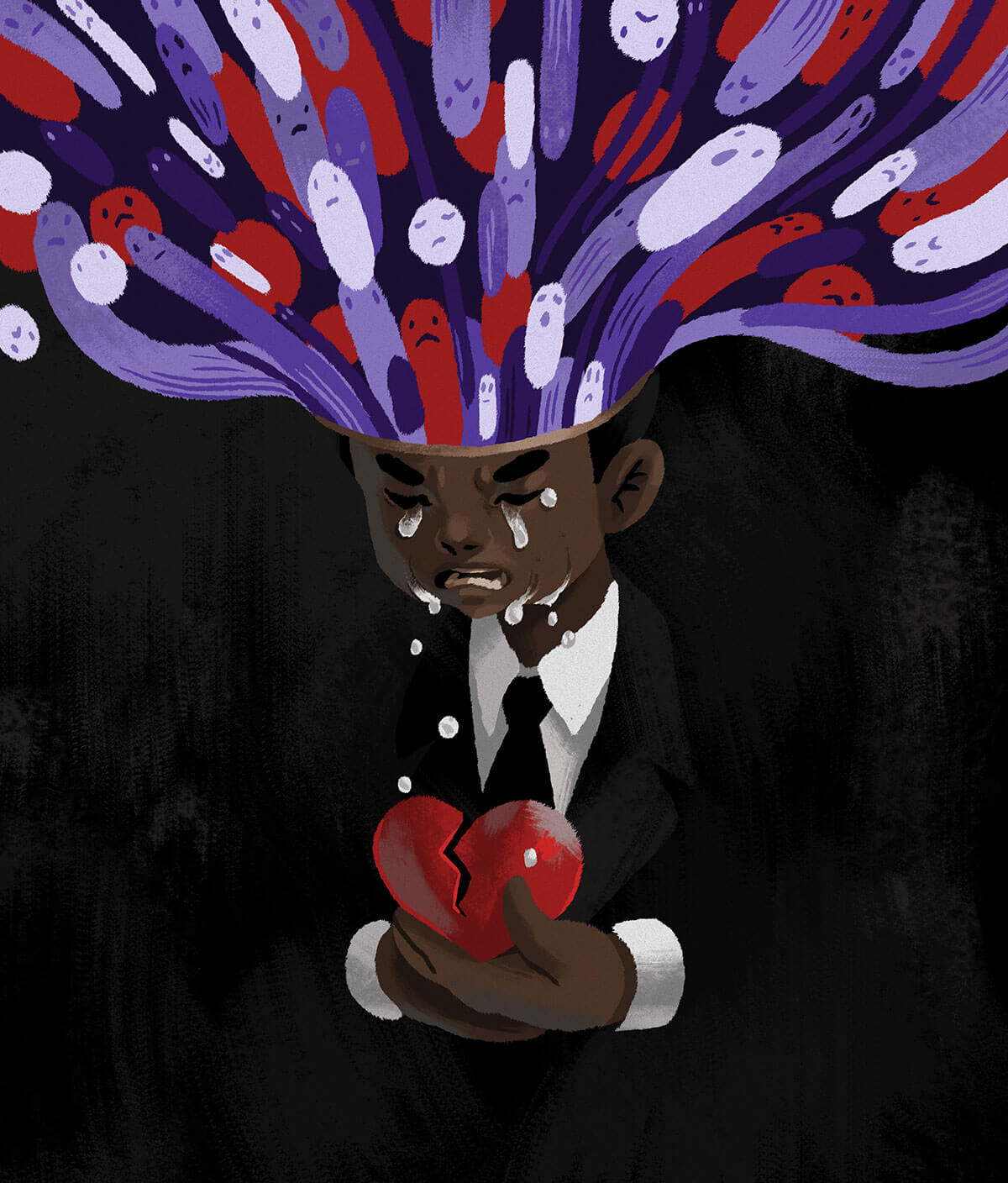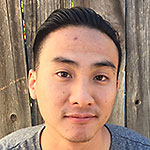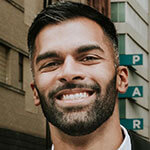
Eulogies have a way of compressing a person.
It is a common adage that one must speak well of the dead, to share more about their better angels instead of their inner demons, so that those who are gathered can grieve, learn, and remember the distilled essence of the deceased. For those with the privilege of speaking at a memorial service, a balancing act lies in discerning how much truth should be revealed of the individual and the relationship, especially if the relationship was strained. Like Tom Sawyer and Huckleberry Finn crashing their own funeral, we long to learn these truths while we are still alive — to hear what those closest and those who we hold in high esteem would say when we are gone. While it may not be the unvarnished truth we would receive, it may be the closest we come to seeing ourselves through the eyes of another person.
I have begun to wonder if those who deliver our eulogies are the storytellers of our lives and if our funerals are the official initiation of our legacies — the beginning of the curation of our lives into symbols by others.
Death has been an incessant presence in my mind lately.

As I write this, the United States has surpassed 200,000 deaths associated with COVID-19, largely preventable morbidities that have far surpassed the death toll of many other national tragedies in our history books. The despicable murders of George Floyd, Breonna Taylor, and Ahmaud Arbery catalyzed national protest with the whiff of change, if not at least unity across large demographics of the United States. Four months later, Jacob Blake was shot seven times in the back in front of his three children, extinguishing any innocence a child has when they witness their father survive only to become paralyzed from the waist down. Icons that have inspired generations through their work were tragically lost, from the tenaciousness of Kobe Bryant, to the preternaturally intentionality of Chadwick Boseman, to the trailblazing diligence of Ruth Bader Ginsburg.
Across our news, social media, and our conversations, eulogies have been pouring across our screens and into our ears for the entirety of this year. These eulogies have ranged from commemorating literal death to scrutinizing one’s soul in a chaotic world. It has been difficult for me to view each of these people as individuals, as siblings, as spouses, as someone’s world, rather than a symbol for either what desperately needs to be changed in our country or in ourselves. I have desired to hear more from the family and friends of those who have lost, to seek out the messiness of their humanity, to really see them as much as you can possibly see a complete stranger instead of losing them to the unending existential void of 2020.
The more we desire to craft the deceased, and ultimately death, into symbols we understand, from epithets to neat Instagram boxes, the further we will be prevented from facing our true fears of death, loss, and what we cannot control in this life.
If this statement is true, we must seek to understand how this year of death has been one of collective grief and anger, albeit grief that not only comes with the loss of a loved one but in the loss of economic and familial stability, the loss of hope for the pages yet unturned, the loss of closure for chapters that were endured and persevered through, and the loss of the perception of one self within one’s tangible community.
We must begin to unpack how this widespread grief has revealed torrential anger — both righteous against the abuse of inequality, and malicious by those looking to hold on to stolen power — as we continue to reckon with our past and to coincide these narratives of American grief moving forward.
• • •
In what seems like a lifetime ago, my wife and I were married in the last few months of 2019. Our wedding did not go by in a blur as so many have described their own wedding days to me. I mostly felt like I was suspended in the act of buffering throughout most of the day — perpetually capturing flashes of family and friends furiously working behind the scenes, the weight and purpose of the ceremony snapping into place, and the joyous chatter and laughter of the reception. For a second, I would feel frozen, able to capture the warmth and vitality of the moment before inevitably feeling pulled forward toward the next event.
This sense of rapidly floating downstream would last for two more weeks after our wedding before coming to an abrupt halt. On our first Saturday together in our new home, we received a call that broke the magnetic pull of the last 14 days — my wife’s sister-in-law and nephew had just passed away in a car crash.
I was not prepared for the journey that lay ahead of us — of not only learning how to be a husband but also to be a husband for a grieving partner as we created our foundation as a couple. I could not anticipate the nights of helplessly listening to the person who you love weep when there is nothing more to say, the exhaustion of fighting against depression and anxiety as a couple, and the explosive anger that came out of both of us upon the realization of dreams that we had unconsciously viewed as birthrights being deferred. All we knew to be possible and true for the future had shifted.
As I looked out to the audience of mourners as my wife and I prepared to deliver our eulogies for her sister-in-law and nephew, a sense of discomforting synchroneity pulsed through me. It felt like we were living parallel timelines. In one timeline, we were exhausted but joyous newlyweds delivering our vote of thanks at our reception 14 days prior. In the other timeline, we were struggling to communicate the intrinsic nature of loved ones who helped make the wedding possible. It seemed that no matter what we did, those timelines would run parallel, never to converge.
That sense of powerlessness clamped its hands on my neck when I found out that my wife was pregnant seven months later. I wanted the discovery of new life to uniformly mean celebration of a new chapter and new beginning, but I only felt exhausting numbness. I would never want to steward a human being into this world who felt unwanted at best, and at worst, unloved. It is not that I did not want children. It was the expectation that children would arrive later in our tumultuous journey as a couple, after we had been able to see the world, to chase each other’s dreams, after our battle wounds of the first few months of our marriage had been sutured into taut scars. I thought we would have more time.
This thought process was not shared by my wife. Her uncertainty was more toward the change but not the ultimate destination, as it had been her lifelong dream to be a mother. While grief complicated this dream in a myriad of ways, especially in the absence of her sister-in-law and nephew, a child for her was a way to begin again. It was difficult for me to see how our child, in the middle of a season of grief, would be allowed the ability to be fully human instead of being reduced into a symbol of restoration.
I knew that discussing this struggle with transitioning from husband to father will seem like an act of selfish ignorance when the gift of new life is a privilege not afforded to everyone. I knew that there would be no specific moment in our relationship where we would feel prepared enough for the responsibilities of parenthood. I believed that God would not allow me to become a father in the midst of a global pandemic if we would not be sustained through the journey. However, a quiet death of self via fatherhood was less appealing to me if it was not tied to a sense of legacy, and the story that I still wanted to write for myself. It was only through looking at our national story did I realize that my feelings toward fatherhood rested in a fear of being forgotten.
• • •
In the year 2042, it is expected that white Americans will no longer be the majority group in the U.S. If projected population rates remain constant, current minority demographics of Brown and Black Americans will be the dominant representative force of America. A Pew Center for Research study in 2019 showed that more than half of white Americans believed that becoming the minority would cause escalating racial and ethnic tension, while about half believed that this cultural shift would weaken American customs and values.
Our current moment shows the story of America being revised and its previous authors feeling the impotency of grief in the loss of their roles in the narrative. Black Americans are continuing their fight for the basic values promised to them as Americans and self-evident as humans with protests being joined by every color and creed. White Americans are being confronted by a loss of their sociopolitical power as the narrative shifts from centering them. It is important to note that this latter type of grief has usually resulted in an inward focus of loss rather than confronting the systems, policies, and implicit participation that perpetuated white Americans abuse of power. These statements are in no way to equalize these types of grief but to instead show how loss is a fundamental starting point to discuss this moment. It is why even prior to one-fifth of a million Americans losing their lives, we had been having charged conversations concerning the symbolism of kneeling, the symbolism of monuments, and the symbolism of flags. The loss of identity leads to the yearning to understand through symbols.
With the additional backdrop of COVID-19, it is difficult to not see America at a crossroad of grief marked by symbols — dealing with the pain of the past against the anxiety of the future as death blooms in our present.
It was through analyzing the language of national grief I was able to probe my own fear of being forgotten.
I had a choice: to be consumed with the protection of my own identity at the expense of another, or to channel my fear toward facing the unknown. If I was dying to myself and had not tangibly reached my personal benchmarks of identity, of relationship, of legacy, I had to confront whether I truly believed I would become partly invisible — alive, but ultimately a symbol for the advancement of my child.
• • •
Due to the rise of coronavirus cases in our state, I was unable to attend any of my wife’s ultrasounds. The envelope of our baby’s gender lay on the table, a blank canvas of dreams patiently waiting to be painted. Gingerly ripping the envelope with nervous eagerness, I eased open the card.
We were having a boy.
Fear was mixed with joy upon discovering the news. My wife was attempting to separate her grief of losing her nephew with the arrival of another little boy within a year. My burgeoning excitement as the process became more real was tempered with the fear of being forgotten arising again. However, this time, the fear centered not around me but for our son. Many second-generation Asian Americans had grown up fighting against an internalized narrative of perfectionism that was implicitly and explicitly handed down by our parents or country. Worries that we would repeat the same mistakes with our child pulsed through me; that we would compare our son not just to his peers or to our own unfulfilled dreams, but to his cousin that he never knew.
The fear of being forgotten, of being erased from the narrative, is an obstacle we will have to battle against our entire lives. No level of awareness alone will eradicate this core issue. America does not merely need to become more “woke.” Human nature cannot reach a sustainable tipping point of enlightenment. If death and erasure from the annals of history waits for all of us, we have the choice to live for our own memory or to dismantle our sense of self, the symbols we place our identity in, and the systems we participate in that erase others.
It is reasonable that we need symbols to understand death. While death comes for us all, it will never be normal to lose a part of ourselves or a loved one. This article is my own attempt in compressing my fears of death to seek understanding for myself and hopefully for others. However, it is in that tension of constant abnormality we must utilize symbols as necessary but not as an ultimate corrective. We must release our hold on symbols, our desire to eulogize and control the narrative, to the vast of the unknown so we can face our grief and the fears we each have about what our life will mean long after we are gone.
I know that I will eventually die and be forgotten. However, until that moment, I pray that Jesus reminds me that my life is not my own, that it came with a price, and that His reward is much greater than the pursuit of being remembered here on this earth. I pray that I believe Jesus will be more than enough.
Impending parenthood challenged the hold I had on my perceived future. It was only through this removal of power in the transition of parenthood that I was able to view my personal story properly — not through the eyes of my future child, or my wife, or even myself. It had to be through the One who enabled death with a purpose outside of its own existence. The compression of death into the symbol of the cross and the new life of the empty tomb helped me understand the freedom I had been given to choose what I wanted to be remembered for. It is in the release of the symbol that my freedom moves from head to heart, from empirical theology to partial inner mystery. I know that beauty awaits in the unknown.

John Enger Cheng serves as creative director of Inheritance. He is a Los Angeles-based artist, designer and illustrator. He graduated from the University of Southern California Roski School of Fine Arts and is co-founder of Winnow+Glean. You can see his illustrative work and store at madebyenger.com.
